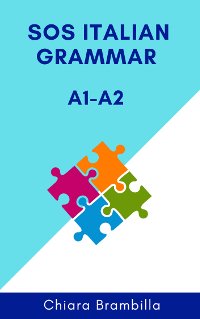
Some weeks ago, I explained how to use the Italian word meno. It’s now time to explain how to use its opposite, più, and specify if you have to use it with preposition “di” or not.
Let’s start by listing the possible meanings of the Italian word più.
The meanings of più
1. You use più to make comparisons to indicate that an amount or a number is more than another amount or number.
Ex: Questo libro costa più di quello
This book costs more than that one
The second term of comparison can be implied.
Ex: Ieri c’era più gente al bar
Yesterday there were more people at the bar
2. You use più to form the relative superlative of majority. In this case it’s preceded by a definite article.
Ex: E’ il più preparato della classe oggi
He’s the most prepared of the class
3. In maths you use più to indicate an addition.
Ex: 12 più 5 fa 17
12 plus 5 equals 17
4. Più can be used also in many expressions such as:
a. Né più né meno = just that
Ex: Devi dirmi cosa pensi veramente, né più né meno
You must tell me what you really think, just that
b. Più o meno = more or less
Ex: Gli ingredienti sono più o meno gli stessi della ricetta tradizionale
The ingredients are more or less the same as the ones in the traditional recipe
5. You can use più as a synonym of “piuttosto” – rather then
Ex: Più che coraggioso a me sembri incosciente
Rather than brave you seem reckless to me
6. You can use più to strengthen what you’re saying. In this case più is followed by che and is used as a synonym of absolutely
Ex. Quello che dici è più che giusto
What you’re saying is exactly right
7. You can use più in negative sentences to say that something will end. In this case più always comes after a verb.
Ex: Ti prometto che non lo farò più
I promise, I will never do this again
8. You use più preceded by the article i or a masculine plural articulated preposition to convey the meaning of majority.
Ex: I più pensano che chi fa da sé fa per tre
The majority of people thinks that if you want something done, you’ve to do it yourself
9. You can also use più preceded by the preposition al to indicate the largest amount or number that is possible
Ex: Questa borsa costerà al più 80 euro
This bag will cost no more than 80 euros
Should I use the word di before più?
The word di is generally used when più follows a verb that ends a sentence:
Ex: Questa torta mi piace molto, dammene di più
I like this cake a lot, give me a bigger portion of it
Compare:
Mario dorme più di Giovanni vs Mario dorme di più
Mario sleeps more than Giovanni vs Mario sleeps more
If you found this article about the word più useful, don’t forget to share it or to like our Facebook page!
Credits:
Original image by nattanan23



 How to get Italian citizenship
How to get Italian citizenship

